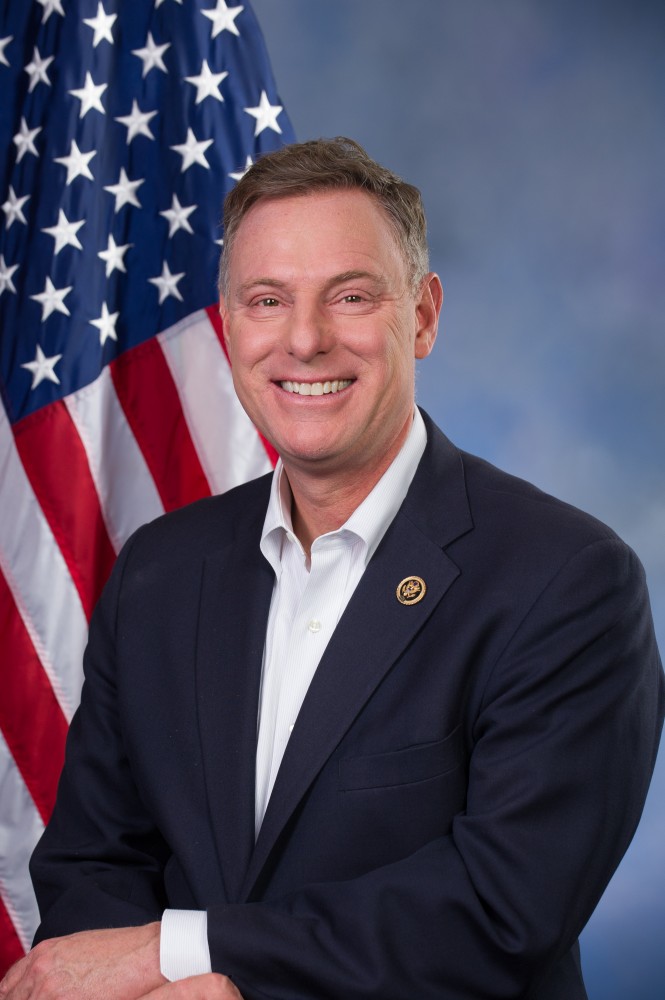
U.S. Congressman Scott Peters (D-CA), whose 52nd District in San Diego County encompasses a large military presence that partners in strategic national defense, thinks it’s important the United States find smart solutions to biothreats that include preparedness for any catastrophic biological event, whether man-made, accidental or naturally occurring.
“One of the top biodefense needs for the United States is proper threat assessments and interagency coordination and planning in order to understand the country’s vulnerabilities,” Rep. Peters recently told Homeland Preparedness News. “We need to best understand what resources are needed and how to prepare for disaster or attack.”
Increasing coordination between specific federal agencies — such as the Centers for Disease Control and Prevention (CDC), the U.S. Agriculture Department and the U.S. Department of Homeland Security, for instance — is vital to maximize America’s readiness for a devastating man-made or chemical bio-attack that could impact significantly large numbers of people, the congressman wrote in emailed responses.
“Following 9/11, our country has done better than perhaps ever before, but we must remain vigilant in our preparations, which is why I supported a provision in the National Defense Authorization Act [that] directs secretaries from multiple agencies to move forward in the planning, development and implementation on biodefense,” Rep. Peters wrote.
Specifically, the National Defense Authorization Act annually authorizes U.S. Department of Defense appropriations for items such as procurement, operations and maintenance, and personnel matters, according to the congressional record. The measure for fiscal year 2018, H.R. 2810/S. 1519, which was signed into law on Dec. 12, 2017, authorized $664 billion in DOD funding that also covered chemical agents and munitions destruction and the Joint Urgent Operational Needs Fund. Peters said last month that the bill provided DOD with the long-term investments it needed to counter 21st century threats.
“Additionally, we must incorporate the work already done by agencies, which provides valuable insights,” he added in an email.
For instance, Peters pointed to the 2017-2018 Public Health Emergency Medical Countermeasures Enterprise (PHEMCE) Strategy and Implementation Plan as an example.
The PHEMCE, under the leadership of the Assistant Secretary for Preparedness and Response at the U.S. Department of Health and Human Services, leads federal agencies in charge of protecting the civilian population from the potential negative health impacts brought on by a variety of known or unknown threats and attacks via the effective use of medical countermeasures (MCM).
Such MCMs may include medicines, devices or other medical interventions that aim to lessen the harmful effects of chemical, biological, radiological and nuclear (CBRN) agents or emerging infectious diseases. Every year, the PHEMCE updates its strategy plan “to ensure optimal allocation of resources to address high-priority threats,” according to the group’s website, and to provide a blueprint for the PHEMCE on enhancing national security through development, procurement and planning for the effective use of MCMs.
In its newest edition, the PHEMCE listed new cross-agency activities it plans to pursue and accomplish that “depend on federal funding levels,” such as Ebola preparedness and response, addressing bacterial threats — including antibiotic resistance, which the enterprise said complicates any public health emergency — and implementing a drop shipment delivery method for product sustainment of a CDC program for rapid local response to nerve agent exposure or organophosphate poisoning.
“Congress can be helpful in providing the leadership to move the ball forward on biodefense, biosafety and biosecurity,” said Peters.
As several members of Congress are set to soon announce the formation of a new bipartisan biodefense caucus, Rep. Peters noted that such a body would be important during this time to bring together different members who “care about taking action on this certain issue.”
As a member of the Congressional Biomedical Research Caucus, Peters added that finding ample funding for research is always a crucial issue in the biodefense and biomedical fields. “Resources that lead to a key discovery in biomedical research can end up being helpful in a variety of different areas, including biodefense,” he said.
Peters, who also co-chairs the Congressional Special Operations Forces Caucus and is a member of the Congressional Navy and Marine Corps Caucus, said such bipartisanship work also shows “the public that Congress can have success in solving the important issues that our country faces.”




